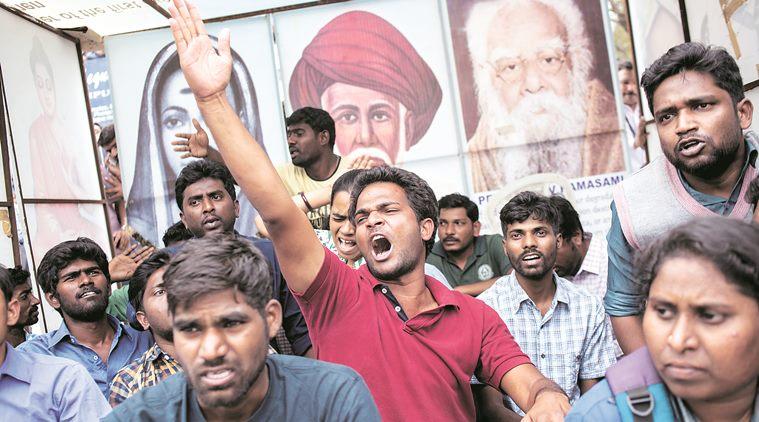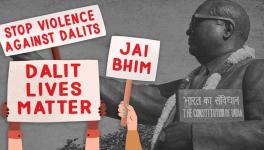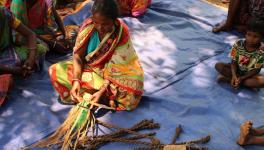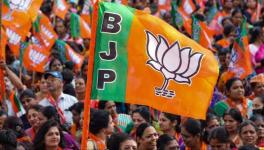New Norms of Post-matric Scholarship for Scheduled Castes are Anti-Dalit

Image Coutesy: Sabrang India
According to the new set of norms by the Union Ministry of Social Justice and Empowerment released on May 30, 2018, the centrally sponsored scheme of post-matric scholarship for students belonging to the Scheduled Castes has been amended. According to the revised guidelines, “The fees claimed against management quota seats, spot admission seat in any Institution/ University will not be reimbursed.”
As per a report in The Hindu, “An estimated four lakh Dalit students in the State [Tamil Nadu], pursuing higher studies, will have to go without Central scholarship from this year if the latest norms of the Union Ministry of Social Justice & Empowerment are to be followed.”
Post-matric scholarship scheme is a Centrally Sponsored Scheme and is implemented through state governments and UT administration. The scheme provides financial assistance to the Scheduled Caste students studying at post-secondary stage to enable them to complete their education. This scholarship is available to Scheduled Caste and Scheduled Tribes students who have completed their standard X (matriculation) examination, if their annual family income is below Rs 2.5 lakhs.
This scholarship helps lakhs of students coming from socially and economically backward communities, as it helps finance their education right up to their PhD. It is a vital intervention for the upward social mobility of scheduled caste and scheduled tribe communities in India. There are various components of the scholarship, such as:
Maintenance allowance, study tour charges, thesis typing, book allowance, book bank facility and additional allowances for SC/ST persons with disability.
The most important component is the reimbursement of compulsory non-refundable fees, which include registration/enrolment fees, tuition fees and other compulsory payments to be made to the institution or to the university. The new norms chiefly affect this component as it now excludes the fees payed, either as a lump-sum for the full course (be it a government or private institute), or fees claimed against management quota seats, and spot admission seats in any institution or university within India.
As per a report in the Times of India, the Chief Minister of Tamil Nadu K Palaniswami, in his letter to Prime Minister Narendra Modi, said that non-reimbursement of fees for management quota seats under the new guidelines "will create a huge setback in achieving the goal of social equity and social justice as it will deny opportunities to the poor SC/ST students in the fields of higher and technical education". This is because a lot of students take admissions in private colleges and universities because the government colleges and universities barely absorb the huge number of aspirants each year.
The Punjab state government has also opposed these revised norms. According to another report, the Scheduled Caste and Backward Class Welfare Minister of Punjab, Sadhu Singh Dharamsot said, “I am going to write to the Centre for bringing appropriate changes in the policy. From where will poor students pay the initial fee?”
Students in all four campuses of Tata Institute of Social Sciences (TISS) had started protesting from February 21 this year, against the institute’s decision to withdraw the post-matric scholarship for SC, ST and OBC students. They also raised the issue of lack of the scholarship funds with the state government, which are released by the Centre. As per a report earlier this year, the Ministry of Social Justice and Empowerment told Parliament on February 2 that the pending scholarship claims from states for Scheduled Caste students amounted to Rs 6,824.5 crore. The states of Tamil Nadu, Uttar Pradesh and Maharashtra are each owed over Rs 1,400 crore.
Get the latest reports & analysis with people's perspective on Protests, movements & deep analytical videos, discussions of the current affairs in your Telegram app. Subscribe to NewsClick's Telegram channel & get Real-Time updates on stories, as they get published on our website.
























